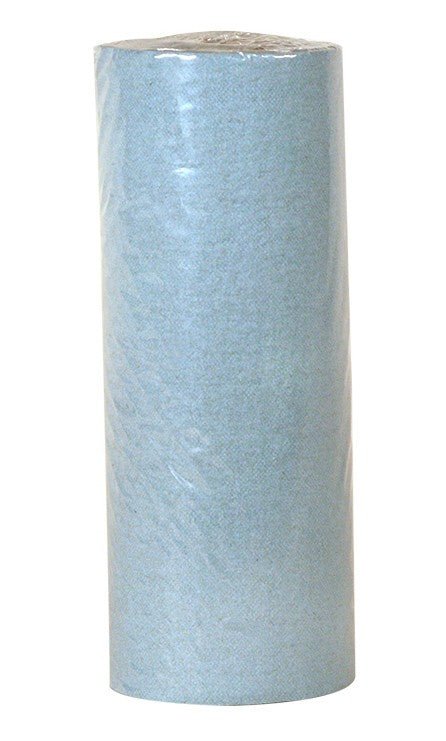Are Generic Blue Shop Towels Just as Good as Kimberly-Clark's?

In the world of cleaning and maintenance, there’s often a belief that brand-name products are inherently superior to their generic counterparts. Take, for example, the blue shop towel—a staple in many workshops and kitchens alike. Kimberly-Clark's Blue Shop Towel has long been synonymous with quality and reliability, but is it really worth the premium price tag compared to generic alternatives found on a kitchen roll?
Understanding the Blue Shop Towel
Blue shop towels are known for their durability and absorbency, making them ideal for tasks ranging from wiping down surfaces to cleaning up spills. Kimberly-Clark, a leader in the industry, has built a reputation around its Blue Shop Towel, marketed under various brand names like WypAll and Scott. These towels are engineered to be tough enough for industrial use yet versatile enough for everyday cleaning at home.
The Case for Generic Alternatives
Enter the generic blue shop towel found on a kitchen roll. Often overlooked in favor of brand-name products, these towels can be surprisingly comparable in quality and performance. Here’s why:
-
Material Composition: Both Kimberly-Clark and generic blue shop towels are typically made from a blend of cellulose and synthetic fibers. This composition gives them strength, absorbency, and lint-free qualities.
-
Performance: In practical tests, generic blue shop towels have been found to absorb liquids and clean surfaces just as effectively as their branded counterparts. They hold up well under pressure and are reliable for everyday tasks.
-
Cost-Effectiveness: Perhaps the most significant advantage of generic towels is their price. They are often considerably cheaper than branded options, offering similar performance at a fraction of the cost.
Debunking the Brand Loyalty Myth
Brand loyalty can be a powerful force, but it’s essential to separate perception from reality when it comes to cleaning products. The assumption that Kimberly-Clark’s Blue Shop Towel is superior solely due to its brand name doesn’t always hold true under scrutiny. Factors like manufacturing standards, material quality, and production techniques can vary widely among brands, but this doesn’t necessarily mean generic products are inferior.
Making an Informed Choice
When choosing between Kimberly-Clark’s Blue Shop Towel and its generic counterparts, consider your specific needs:
- Usage: Are you using the towel for heavy-duty tasks or general cleaning?
- Frequency: How often do you use shop towels, and does cost play a significant factor in your decision?
- Environmental Impact: Some generic brands may offer eco-friendly options, which could be a consideration if sustainability is a concern.
Conclusion
In conclusion, the debate over whether generic blue shop towels on a kitchen roll are as good as Kimberly-Clark’s branded options boils down to personal preference and specific needs. While Kimberly-Clark has established itself as a leader in the industry, generic alternatives can provide comparable performance at a lower cost. Ultimately, the choice between brand-name and generic shop towels depends on your budget, priorities, and the tasks at hand. Next time you’re stocking up on cleaning supplies, consider giving generic Blue Shop Towel a chance—you might just find they’re more than capable of meeting your expectations.
